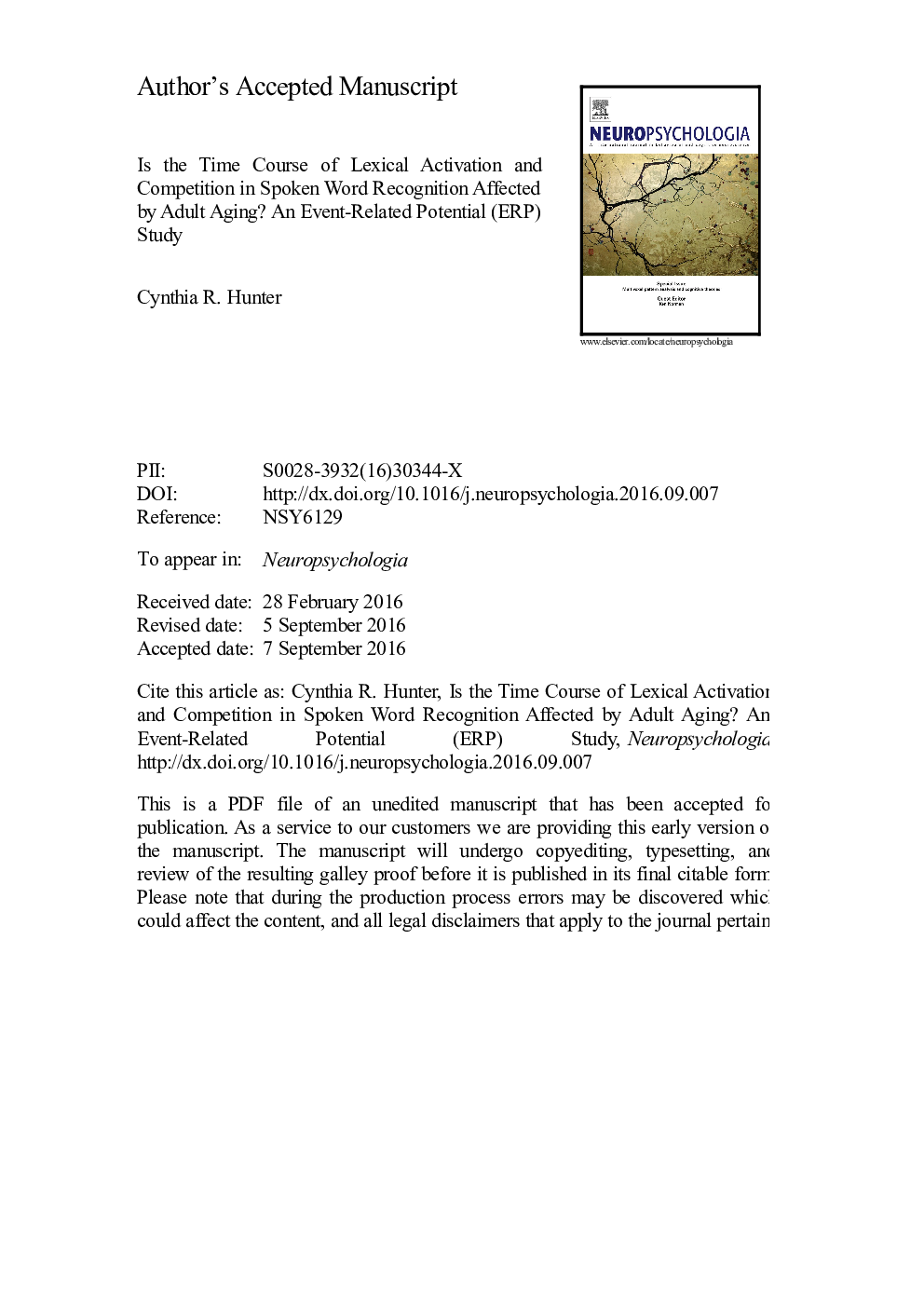| Article ID | Journal | Published Year | Pages | File Type |
|---|---|---|---|---|
| 7318672 | Neuropsychologia | 2016 | 60 Pages |
Abstract
Adult aging is associated with decreased accuracy for recognizing speech, particularly in noisy backgrounds and for high neighborhood density words, which sound similar to many other words. In the current study, the time course of neighborhood density effects in young and older adults was compared using event-related potentials (ERP) and behavioral responses in a lexical decision task for spoken words and nonwords presented either in quiet or in noise. Target items sounded similar either to many or to few other words (neighborhood density) but were balanced for the frequency of their component sounds (phonotactic probability). Behavioral effects of density were similar across age groups, but the event-related potential effects of density differed as a function of age group. For young adults, density modulated the amplitude of both the N400 and the later P300 or late positive complex (LPC). For older adults, density modulated only the amplitude of the P300/LPC. Thus, spreading activation to the semantics of lexical neighbors, indexed by the N400 density effect, appears to be reduced or delayed in adult aging. In contrast, effects of density on P300/LPC amplitude were present in both age groups, perhaps reflecting attentional allocation to items that resemble few words in the mental lexicon. The results constitute the first evidence that ERP effects of neighborhood density are affected by adult aging. The age difference may reflect either a unitary density effect that is delayed by approximately 150Â ms in older adults, or multiple processes that are differentially affected by aging.
Keywords
Related Topics
Life Sciences
Neuroscience
Behavioral Neuroscience
Authors
Cynthia R. Hunter,
